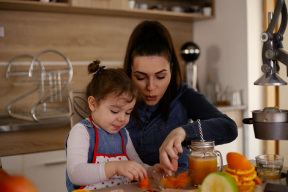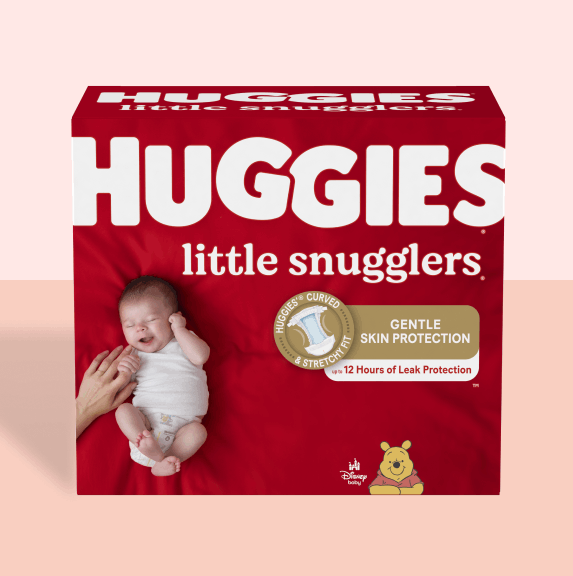Growth and development at 20 months old
Play and interaction at 20 months old
Their creative juices will be flowing now and you’ll hear them talking away to themselves, their toys, the cat, and even the plants. Practice makes perfect with language, so encourage these little conversations. Avoid correcting your toddler when they don’t pronounce words correctly or assign the wrong name to an object. Your toddler will be very sensitive to your criticisms, and this can undermine their confidence. Try not to compare your toddler’s speech and language with other children, particularly between genders. Girls tend to be more advanced with their language development than boys at this age.
What you can expect at 20 months old
A different range of activities will attract your toddler’s eye around now. They may be drawn to groups of other children but still focus pretty much on their own individual play. Parallel play is a feature of this age where toddlers play alongside each other rather than with each other. The noise and movement of the other kids will be a magnet. Don’t expect your toddler to share yet or be sensitive to other children’s needs. This is the age where pushing and biting can occur, which causes some parents to become very alarmed.
At 20 months, toddlers are still governed by instincts generated from their immature brain. They are simply incapable of being consistently kind and considerate. Given time, maturity, and lots of positive role modeling, they will mature and learn these important human traits.
Food and nutrition at 20 months old
At this age toddlers have learned how to access the refrigerator and pantry and will try to help themselves to food. This may not be a problem as long as what they can get to is healthy and not impacting their appetite at mealtimes. Pay attention to what they are eating and regulate their intake of snacks.
Take a water bottle with you each time you go out and let your toddler see you drinking water too. Show them how you turn on the tap and get a drink themselves. It’s worth investing in a stepping stool for the bathroom and the kitchen.
Keeping your toddler healthy at 20 months old
Your toddler may seem perfectly fine one minute and clearly not feeling well the next. Children can become sick quickly, but they also tend to recover quickly, too. A normal temperature range for any of us is between 97° and 99° Fahrenheit. Keep some acetaminophen—a pain reliever and fever-reducer—on hand. Always follow the directions on the bottle. Your child needs to be examined by a doctor if they have an elevated temperature.
General tips
- Try for a consistent and predictable family life. At this age, toddlers tend to thrive with routines and structure. Some children are more adaptable than others and tend to be easier to manage. Others are more sensitive to change and don’t handle unpredictability or boundaries as well.
- Think about your own language and the daily messages you are giving your 20-month-old. Saying “no” repeatedly will lose its significance for the times when you really need it. Praise when they have earned it and give it as if you mean it. This will do more to reinforce their positive behavior than lots of negativity.
- Aim to work consistently with your partner and invest equal enthusiasm and energy into your parenting. Children of both sexes benefit from seeing their parents in nurturing and guiding ways. Think about the stereotyping that your toddler could be influenced by and consider if this is something you want to maintain.
- Around 90% of your toddler’s brain growth will occur in the first 5 years of life. Their brain is literally being shaped and molded by their experiences over these years. Aim to have a home life that is rich and varied with music, stimulation, color, and fun activities. Play with them and have fun every day—they really are worth it.
- Avoid cleaning up your toddler’s messes too quickly. One big clean up at the end of the day will save your energy and sanity.
The information of this article has been reviewed by nursing experts of the Association of Women’s Health, Obstetric, & Neonatal Nurses (AWHONN). The content should not substitute medical advice from your personal healthcare provider. Please consult your healthcare provider for recommendations/diagnosis or treatment. For more advice from AWHONN nurses, visit Healthy Mom&Baby at health4mom.org.









